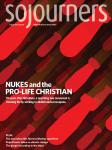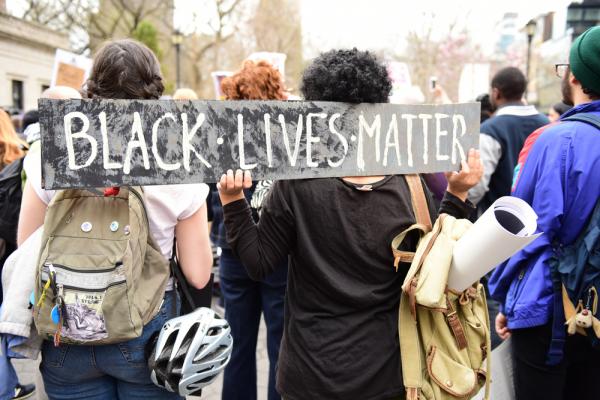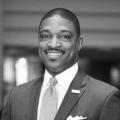PEOPLE HAVE CALLED me a lot of things: Host pastor of the #BlackLivesMatter freedom ride; student of teenage and Millennial activists; leader of a state commission advocating policy change; bail negotiator; street agitator; and militant mediator. Since the Holy Spirit was poured out onto the streets of Ferguson, Mo., and St. Louis in the wake of Michael Brown’s death, I’ve been called and challenged to play these roles—and more.
Yes, I did say the Holy Spirit. The same Spirit that fell at Pentecost as a dynamic demonstration of God’s power to overcome the barriers of language, ethnicity, gender, class, and sexual orientation. The Spirit of hope that caused a community once rebuked for its broken dialect to speak with one voice. The Spirit of holiness that enabled a people dismissed for “drunkenness” (see Acts 2:15) to form the first fruits of the church.
We may have missed it because those the Spirit fell on nearly a year ago weren’t wearing robes and stoles, but hoodies and bandanas. They weren’t singing anthems and hymns, but chanting what some would call obscenities. They weren’t called saints and disciples by the media, but thugs and outside agitators.
But last summer, in the week between Michael Brown’s death on Aug. 9 and Missouri Gov. Jay Nixon’s declaration of a state of emergency on Aug. 16, the Spirit was poured upon “all flesh” and our sons and daughters began to prophesy. It was a week-long act of the Spirit, replanting a church in resistance for the work of reconciliation.
Swiss theologian Karl Barth discussed three phases of reconciliation in his classic Church Dogmatics: the world reconciled to God, persons reconciled to other persons, and a person becoming reconciled within one’s self. The diverse social realities of the ethnic Jews gathered on that first Pentecost and the social disparities in life outcomes and expectancy based upon zip code, race, and ethnicity in the Fergusons and Baltimores of the U.S. today call us to consider a fourth phase: socioeconomic reconciliation.
“Socioeconomic reconciliation” is the removal of gaps in opportunity, achievement, health, thriving, and well-being that exist between groups of people in our nation and world. In the face of myriad breaches of the common human bond and experience, a breakthrough act of the Spirit today would activate and agitate the established church in her ministry: a ministry of socioeconomic reconciliation.
The ministry of socioeconomic reconciliation will require a church empowered with tongues of fire and the gift of interpretation. These tongues must speak with a prophetic voice. But we must also have the heart and capacity to translate the words of marginalized communities into the language of policy, power, and program. This form of reconciliation requires the church to fulfill the vocation of the militant mediator, offering the streets and city hall as much renewal as we experience in the sanctuary.
It is the Holy Spirit that allowed the people at Pentecost to understand one another. This capacity to translate the community’s voice into policy for social change must be universally affirmed as a charism by the church. As Catholic theologian Robert Schreiter reminds us, reconciliation requires spirituality and strategy. When we marry the two, we make history.
As we look ahead to the first anniversary of the outpouring of the Spirit in Ferguson, we will also honor the 50th anniversary of another breakthrough for socioeconomic reconciliation. On July 30, 1965, in Independence, Mo., President Lyndon B. Johnson signed Medicare and Medicaid into law. Exactly seven days later, on Aug. 6, he signed the Voting Rights Act, guaranteeing African Americans the right to vote. Neither of these critical social reforms would have occurred without the acts of a Spirit-led church. What a week!

Got something to say about what you're reading? We value your feedback!

